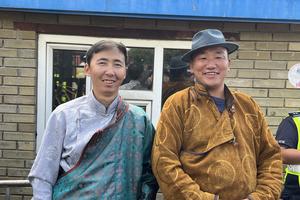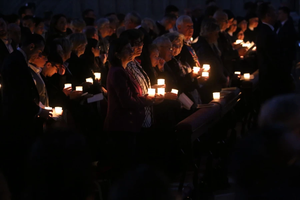Mongolia’s Former President Lauds Country’s Promotion of Religious Freedom
Elbegdorj explained that during the Mongolian empire, all those who worked in church temples were exempt from military service and from paying taxes to show respect to those religious people.

Mongolia, which Pope Francis is visiting this week, is a nation where religious freedom and respect for human life are “fundamental” values, the country’s former president said.
Tsakhiagiin Elbegdorj, Mongolia's president from 2009 to 2017, spoke about those values earlier this year in an interview with EWTN News Nightly.
“Throughout our history, Mongols were very respectful for religious beliefs,” he said.
Elbegdorj explained that during the Mongolian empire, all those who worked in church temples were exempt from military service and from paying taxes to show respect to those religious people.
In October 2011, Elbegdorj met with Pope Benedict XVI during a visit to the Vatican.
“Our meeting was very warm,” he recalled. “I recall that was really one of the best meetings I had and we talked about our history, also including the religious history, and the pope was actually very much interested.”
He shared that Benedict XVI’s “humanity and his love of humanity and his passion to serve in the best interest of humanity” will be the late pope’s lasting legacy.
The former prime minister also met Pope Francis during a meeting with the International Commission Against Death Penalty, of which Elbegdorj is the commissioner.
“We know that Pope Francis has a great attitude towards respecting and campaigning for life and also campaigning against the death penalty,” he said. “We talked about how important it is to advocate for life and how important it is to abolish the death penalty.”
Elbegdorj explained that he was one of the people who helped to establish a nongovernmental organization in Mongolia against the communist regime in the late 1980s. This coincided with the fall of the Berlin Wall and the Tiananmen Square massacre.
- Keywords:
- mongolia















